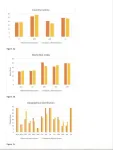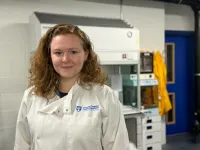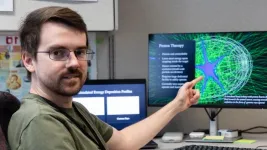(Press-News.org) Copenhagen, Denmark: International experts in emergency medicine have warned that climate change is likely to have a severe impact on emergency services around the world. Despite this, few countries have assessed the scale of the impact or have a plan to deal with it.
In a special session at the European Emergency Medicine Congress today (Sunday), Luis Garcia Castrillo, a professor in emergency medicine, now retired, at the Hospital Marqués de Valdecilla, Santander, Spain, described how he and colleagues from EUSEM’s Emergency Medicine Day working group had asked 42 focus groups, consisting of experts in emergency medicine, prehospital care and disaster medicine, in 36 countries in 13 UN regions of the world to complete a survey on climate change awareness and preparedness [1]. The research is due to be published in the European Journal of Emergency Medicine [2].
“On a scale of 0 to 9, they rated the severity of the impact of climate change on health systems and specifically on emergency care, both now and in the future, at an average of 7,” he said. “This is a high figure, especially as some regions, such as northern Europe, consider it to be less of a problem than do other countries, such as Australia.
“The focus groups considered that the impact of climate change on emergency medical services would be similar or even higher than on global health systems. However, only 21% of the focus group members reported that assessments of the effect of climate change on emergency medical services had been carried out, and only 38% reported any measures had been taken to prepare for the impact of climate change .
“Out of all the focus group respondents, 62% said their governments or policy makers had made no assessment of the impact of climate change on emergency services, 9% said they didn’t know, 55% said nothing had been done to prepare for the impact of climate change, and 10% didn’t know.
“It is surprising how awareness is lacking in so many countries, as well as among emergency medicine societies. Some countries do not seem to be concerned at all. Yet this is going to affect rich and poor countries alike.”
Dr Roberta Petrino, director of the Emergency Department at Ente Ospedaliero Cantonale, Lugano, Switzerland, co-chaired the session “Climate change is a health emergency too”, and is a co-author of the report.
She said: “One interesting finding is that the need to implement actions to mitigate climate change is considered important everywhere. In particular, our survey showed the need to strengthen emergency medicine services and education programmes for medical students and emergency medicine doctors, as well as research.
“Emergency medical professionals are very worried about the effects of climate change on the care they provide. Our report shows that colleagues feel it’s an important problem around the world, although specific issues vary from one region to another and these relate to geographical position, the economic situation and the types of risks.”
Between 15 February and 15 March 2024, the researchers asked national and international emergency medicine associations around the world to set up focus groups of between four to six members to answer a series of questions. The 42 focus groups reported on general awareness and concern about climate change, and then ranked in terms of severity the different threats, the possible impacts on emergency medical departments, and, finally, the measures needed to mitigate the problems.
Across all the focus group responses, the top three major risks were pollution, flooding and heatwaves. Three minor risks were cold spells, wildfires and vector-borne diseases, such as malaria. The greatest impact was expected to be an increase in demands on the emergency medical services. The focus groups ranked preparation of strategic plans and education as the two strategic actions that were most important.
Focus groups from high income countries were most concerned about the risks of heatwaves, cold spells and wildfires. They considered the greatest impact would be increased numbers of patients, and they thought education and preparation of strategic plans were the most important actions necessary to mitigate the risks. Countries in northern Europe and the eastern Mediterranean were very concerned about displacement of populations and disruption to basic services.
Focus groups from low and middle-income countries ranked the impact of climate change on food production and disruption to health services as being the most significant risks.
Analysis of the data by region showed that climate change was expected to have a greater impact in Australasia, and countries in Eastern Europe, South Asia, South Saharan Africa and Central America. Countries such as Egypt and Nigeria expected the lowest impact, while South Saharan African regions expected the highest. There were significant differences between regions for the risks of vector-borne disease, climate-related diseases, wildfires, extreme weather events and food shortages. Australasia, Central America and South Saharan Africa had the greatest concerns about these compared to European regions.
The focus group concerns were also analysed through the WorldRiskIndex, a statistical model that assesses the risk of 193 countries falling victim to humanitarian disasters caused by extreme natural events and climate change. It ranks countries from very low risk through to very high risk. The fear of increased demand for emergency medical services, and disruption to the chain of supplies and health services was directly related to WorldRiskIndex, with concerns growing with increasing risk.
“It is clear from our findings that climate change is expected to have a significant impact on emergency medical services,” said Dr Petrino. “Much greater awareness of this is needed at national and international level among policymakers, healthcare providers, healthcare professionals and the general public.
“The European Society of Emergency Medicine calls for nations to put in place plans to mitigate the impact on our services from climate change. In addition to publishing our findings, the Society will be setting up a permanent working group to support, help and monitor actions for mitigating the effects of climate change on the emergency medical services. We will also be talking to key people and institutions to raise awareness.
“As we head towards the end of a year that has seen records broken for the planet’s hottest days, action cannot come quickly enough. Climate change is having an impact on all countries, rich and poor, regardless of geographical region. The world faces a climate change emergency, and our medical services face an emergency too.”
Prof. Garcia-Castrillo and Dr Petrino thanked the emergency medicine community and societies worldwide, who had made it possible to conduct the survey.
(ends)
[1] “The results of the survey on awareness and preparedness for climate change” presented by Luis Garcia-Castrillo, in the session “EM Day Campaign 2024: climate change is a health emergency too!”, 16:30 hrs CEST, Room D4-D5.
[2] “Awareness and preparedness of health systems and emergency medicine systems to the climate change challenges and threats: an international survey”, by Roberta Petrino, Luis Garcia-Castrillo, Graziano Uccheddu, Letizia Meucci, Roberta Codecà. To be published soon in the European Journal of Emergency Medicine.
END
Climate change is a health emergency too
International experts warn of impact on emergency medical services worldwide
2024-10-13
ELSE PRESS RELEASES FROM THIS DATE:
Chronic stress accelerates colorectal cancer progression by disrupting the balance of gut microbiota, new study shows
2024-10-12
(13 October 2024, Vienna, Austria) Cutting-edge research has uncovered how chronic stress disrupts the balance of gut microbiota to speed up the progression of colorectal cancer (CRC), opening new avenues for CRC prevention and treatment.1
By eliminating certain gut bacteria and inducing stress, researchers were able to conclude a relationship between stress and gut microbiota in the progression of CRC, identifying a particular bacterial species as a potential therapeutic target.
Presenting the study at UEG Week 2024, lead researcher Dr Qing Li explained, “In our study, we used an antibiotic ...
Brazilian study identifies potential targets for treatment of visceral leishmaniasis
2024-10-11
Researchers at the Federal University of São Carlos (UFSCar), the State University of Campinas (UNICAMP) and the University of São Paulo (USP) in Brazil have characterized for the first time a class of proteins present in the parasite Leishmania infantum and involved in regulating its cell cycle. In an article published in PLOS Pathogens, they describe potential pharmaceutical targets for the treatment of visceral leishmaniasis. Existing therapeutic strategies are considered insufficiently effective.
In eukaryotic organisms, which have cells with a defined nucleus and include all plants and animals, the ubiquitin-proteasome system (UPS) ...
Using AI and iNaturalist, scientists build one of the highest resolution maps yet of California plants
2024-10-11
With the help of deep learning, University of California, Berkeley, scientists have leveraged citizen science data from the app iNaturalist to create the highest resolution maps yet of plant distributions throughout California.
iNaturalist is a widely-used cellphone app, originally developed by UC Berkeley students, that allows people to upload photos and the location data of plants, animals or any other life they encounter and then crowdsource their identity. The app currently has more than 8 million users worldwide who collectively have uploaded more than 200 million observations.
The researchers used a ...
Researchers identify signs tied to more severe cases of RSV
2024-10-11
Respiratory syncytial virus (RSV) is the leading cause of hospitalization in young children due to respiratory complications such as bronchiolitis and pneumonia. Yet little is understood about why some children develop only mild symptoms while others develop severe disease. To better understand what happens in these cases, clinician-scientists from Brigham and Women’s Hospital, a founding member of the Mass General Brigham healthcare system, and Boston Children’s Hospital analyzed samples from patients’ airways and ...
Mays Cancer Center radiation oncologist recognized as outstanding mentor to next generation leaders
2024-10-11
SAN ANTONIO, Oct. 11, 2024 – David Gius, MD, PhD, professor in the Department of Radiation Oncology and assistant dean of research at The University of Texas Health Science Center at San Antonio (UT Health San Antonio), was named this year’s recipient of the prestigious American Society for Radiation Oncology (ASTRO) Career Recognition Mentorship Award.
Gius is associate cancer center director for translational research at Mays Cancer Center at UT Health San Antonio. He is among three awardees receiving this recognition. The award honors individuals who have made significant contributions to mentorship ...
Hitting the bull’s eye to target ‘undruggable’ diseases – researchers reveal new levels of detail in targeted protein degradation
2024-10-11
Hitting the bull’s eye to target ‘undruggable’ diseases – researchers reveal new levels of detail in targeted protein degradation
Targeted protein degradation has opened up a new field of drug discovery with potential to treat previously ‘undruggable’ diseases
Dundee researchers have revealed new levels of details of how protein degraders work
The work means new drugs can be much more accurately targeted at the molecular level, creating and hitting a metaphorical ...
SCAI publishes expert consensus statement on managing patients with ST-elevated myocardial infarction
2024-10-11
WASHINGTON —The Society for Cardiovascular Angiography & Interventions (SCAI) is pleased to announce the publication of the Expert Consensus Statement on the Management of Patients with STEMI Referred for Primary PCI.
Published in JSCAI, the consensus statement provides detailed suggestions for clinicians, particularly for nuanced situations not covered by general guidelines. It highlights the strengths and limitations of various diagnostic and therapeutic interventions for treating patients with STEMI, provides ...
Engineering perovskite materials at the atomic level paves way for new lasers, LEDs
2024-10-11
Researchers have developed and demonstrated a technique that allows them to engineer a class of materials called layered hybrid perovskites (LHPs) down to the atomic level, which dictates precisely how the materials convert electrical charge into light. The technique opens the door to engineering materials tailored for use in next-generation printed LEDs and lasers – and holds promise for engineering other materials for use in photovoltaic devices.
Perovskites, which are defined by their crystalline ...
Kessler Foundation 2024 Survey highlights key strategies for hiring and supporting workers with disabilities in the hospitality industry
2024-10-11
East Hanover, NJ – October 11, 2024 – A new Kessler Foundation survey of supervisors in the hospitality industry – focused on restaurant and traveler accommodations – has revealed critical insights into the recruitment, support, and accommodation of workers with disabilities. The findings, released today in a special live Zoom webinar, offer actionable takeaways for employers looking to diversify their workforce and enhance workplace inclusion. Key points revealed that proactive recruitment, effective partnerships, and ...
Harnessing protons to treat cancer
2024-10-11
NEWPORT NEWS, VA – Radiation therapy techniques have been used for more than a century to treat cancers. Physicists in the Radiation Detector and Imaging group and associated with the Biomedical Research & Innovation Center (BRIC) at the U.S. Department of Energy’s Thomas Jefferson National Accelerator Facility have been for several years pursuing radiation therapy technology improvements in collaboration with the Hampton University Proton Cancer Institute (HUPCI). Now, BRIC physicists are launching a study into how best to advance different types of radiation therapy.
BRIC scientists plan to evaluate the ability of accelerator-based ...
LAST 30 PRESS RELEASES:
EANM launches new award to accelerate alpha radioligand therapy research
Globe-trotting ancient ‘sea-salamander’ fossils rediscovered from Australia’s dawn of the Age of Dinosaurs
Roadmap for Europe’s biodiversity monitoring system
Novel camel antimicrobial peptides show promise against drug-resistant bacteria
Scientists discover why we know when to stop scratching an itch
A hidden reason inner ear cells die – and what it means for preventing hearing loss
Researchers discover how tuberculosis bacteria use a “stealth” mechanism to evade the immune system
New microscopy technique lets scientists see cells in unprecedented detail and color
Sometimes less is more: Scientists rethink how to pack medicine into tiny delivery capsules
Scientists build low-cost microscope to study living cells in zero gravity
The Biophysical Journal names Denis V. Titov the 2025 Paper of the Year-Early Career Investigator awardee
Scientists show how your body senses cold—and why menthol feels cool
Scientists deliver new molecule for getting DNA into cells
Study reveals insights about brain regions linked to OCD, informing potential treatments
Does ocean saltiness influence El Niño?
2026 Young Investigators: ONR celebrates new talent tackling warfighter challenges
Genetics help explain who gets the ‘telltale tingle’ from music, art and literature
Many Americans misunderstand medical aid in dying laws
Researchers publish landmark infectious disease study in ‘Science’
New NSF award supports innovative role-playing game approach to strengthening research security in academia
Kumar named to ACMA Emerging Leaders Program for 2026
AI language models could transform aquatic environmental risk assessment
New isotope tools reveal hidden pathways reshaping the global nitrogen cycle
Study reveals how antibiotic structure controls removal from water using biochar
Why chronic pain lasts longer in women: Immune cells offer clues
Toxic exposure creates epigenetic disease risk over 20 generations
More time spent on social media linked to steroid use intentions among boys and men
New study suggests a “kick it while it’s down” approach to cancer treatment could improve cure rates
Milken Institute, Ann Theodore Foundation launch new grant to support clinical trial for potential sarcoidosis treatment
New strategies boost effectiveness of CAR-NK therapy against cancer
[Press-News.org] Climate change is a health emergency tooInternational experts warn of impact on emergency medical services worldwide




